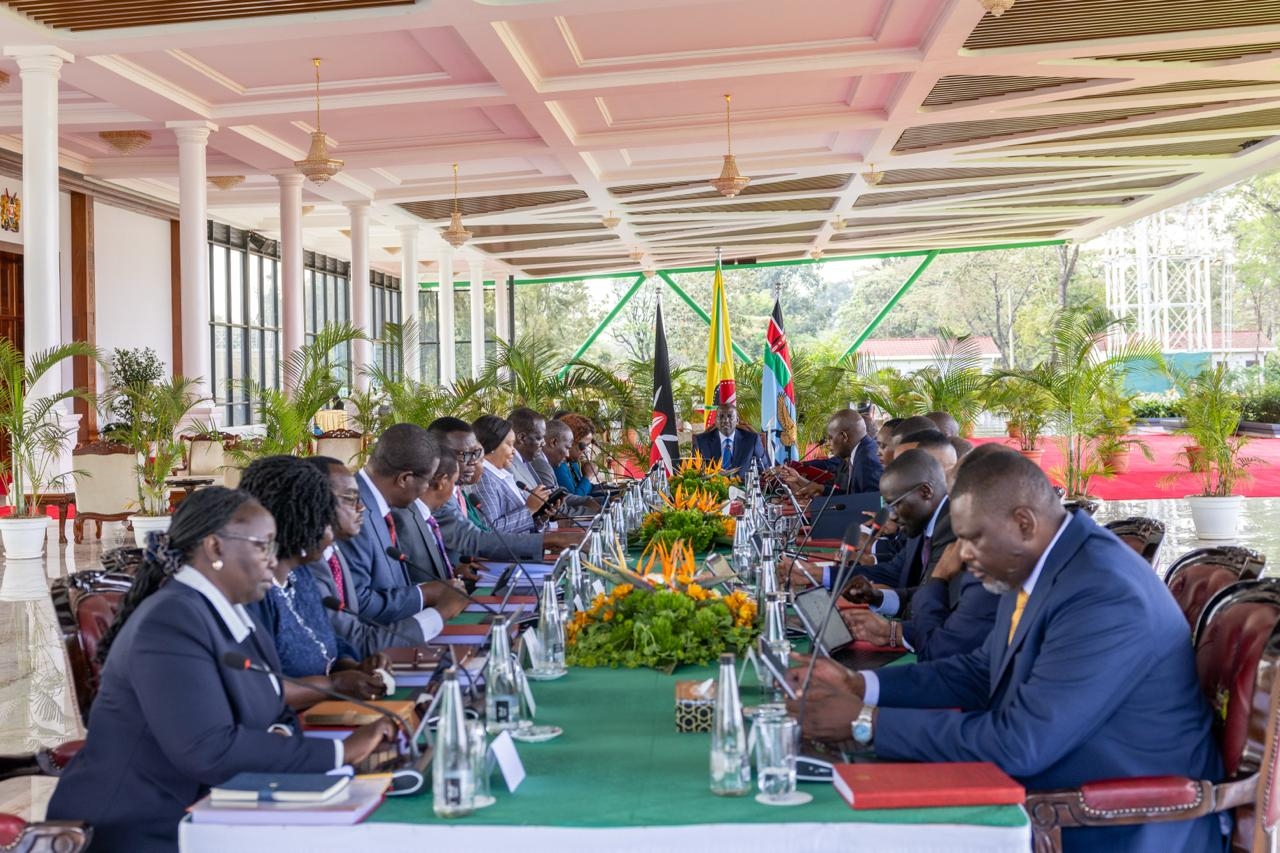
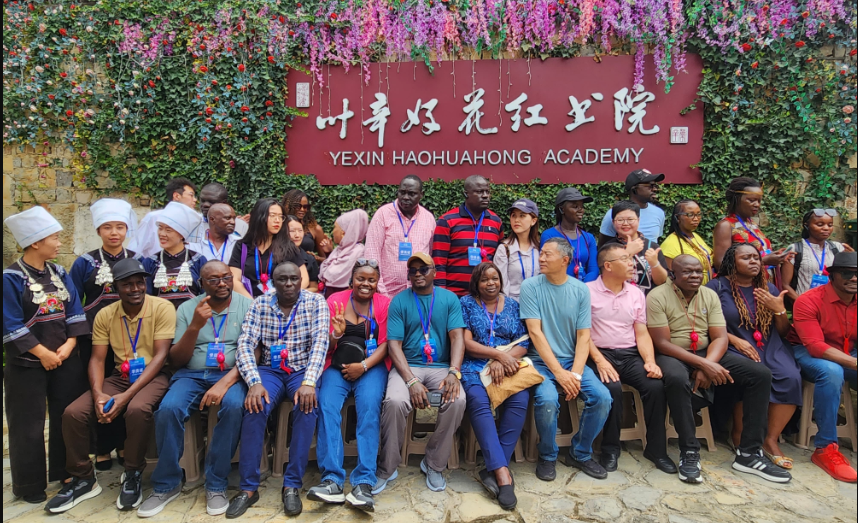 Kenyan delegates pose for a group photo, pictured with eggs on their necks during a visit to Huishui county, China, on September 8, 2025/LEAH MUKANGAI
Kenyan delegates pose for a group photo, pictured with eggs on their necks during a visit to Huishui county, China, on September 8, 2025/LEAH MUKANGAIWhen our delegation of Kenyan journalists touched down in Guiyang after days in Beijing, none of us knew what to expect from the Buyi community.
We had read that Guizhou Province was home to dozens of ethnic groups, but nothing prepared us for the warmth of the welcome that awaited us.
Guiyang, the capital of Guizhou Province in southwest China, is a city tucked among green hills and limestone mountains.
From Beijing, it takes about three hours by plane — a flight that makes one feel like a journey into a different cultural world.
As we entered the Buyi settlement on the city’s edge, a group of women dressed in shimmering indigo outfits embroidered with bright geometric patterns greeted us with loud, joyful songs.
Their silver ornaments glistened as they swayed in rhythm, their voices rising in harmony that seemed to echo across the hillsides. The welcome was powerful, proud, and distinctly feminine — a chorus of tradition that carried centuries of culture in its notes.
The egg that carried friendship
The climax of the welcome was both puzzling and delightful. Each of us was presented with what looked like a decorated pendant, the kind you might wear on a string around your neck. Its surface was painted in bright colours — blues, greens, reds — with patterns resembling waves and mountains.
At first, we assumed it was a bead or a carved ornament. Then the truth dawned: it was a real boiled egg.
I laughed in disbelief, holding it gingerly as though it might crack in my hands. The guide, a young Buyi woman who spoke to us through our Chinese host and translator, smiled knowingly.
“This egg is special,” she explained. “It shows friendship. It is beautiful to look at, but also real food. You can eat it. That is how we want friendship to be.”
Later that afternoon, I peeled mine and tasted it. The egg was perfectly boiled, the yolk rich and firm. Around me, other Kenyan colleagues did the same, our laughter echoing across the wooden courtyards as we marvelled at the surprise of it all.
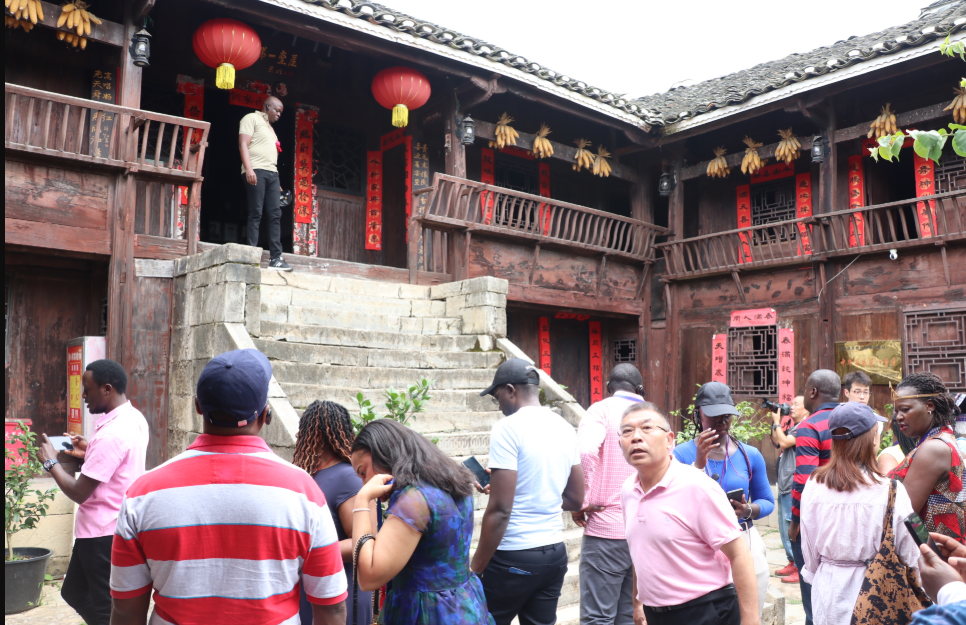 Kenyan delegates visit some of the ancient structures in Huishui county, China, on September 8, 2025/LEAH MUKANGAI
Kenyan delegates visit some of the ancient structures in Huishui county, China, on September 8, 2025/LEAH MUKANGAI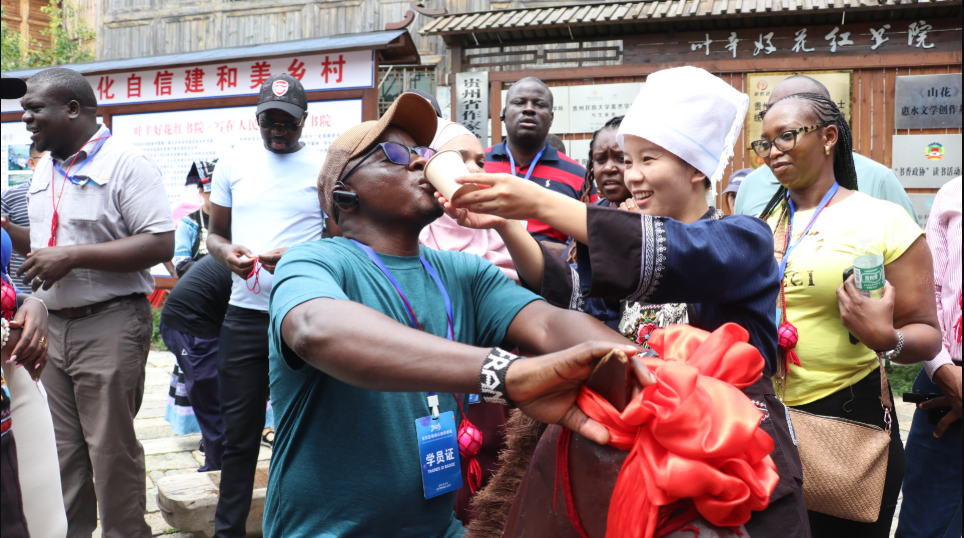 Radio Africa group digital head Francis Mureithi sips a 'welcome drink' from one of the Buyi members at Huishui county, China, on September 8, 2025/LEAH MUKANGAI
Radio Africa group digital head Francis Mureithi sips a 'welcome drink' from one of the Buyi members at Huishui county, China, on September 8, 2025/LEAH MUKANGAIA feast in togetherness
The welcome continued with a meal unlike any I had experienced before. Long tables were arranged side by side, with chairs facing each other.
Instead of individual servings, the food was laid out communally — platters of boiled maize, boiled sweet potatoes, juicy grapes, assorted vegetables, and several traditional dishes we could not even identify. Discovery, we realised, was in the eating.
At first, there was hesitation. Each of us waited for someone brave enough to take the first bite and give the green light. Once one colleague smiled and nodded approvingly, the rest of us dug in with excitement.
Some of us tried our hands at using the traditional chopsticks. Food slipped, fell, or stubbornly refused to be picked up. A few succeeded, but others failed terribly, laughing at their own attempts before resorting to toothpicks or bare hands.
In the end, it didn’t matter — the food was plentiful, delicious, and shared with joy. Two different brands of traditional, well-blended juices accompanied the feast, refreshing and sweet, a perfect complement to the hearty meal.
“This is our way,” our guide said. “When we eat, we sit together and talk. Food is not just about eating. It is about sharing, about community.”
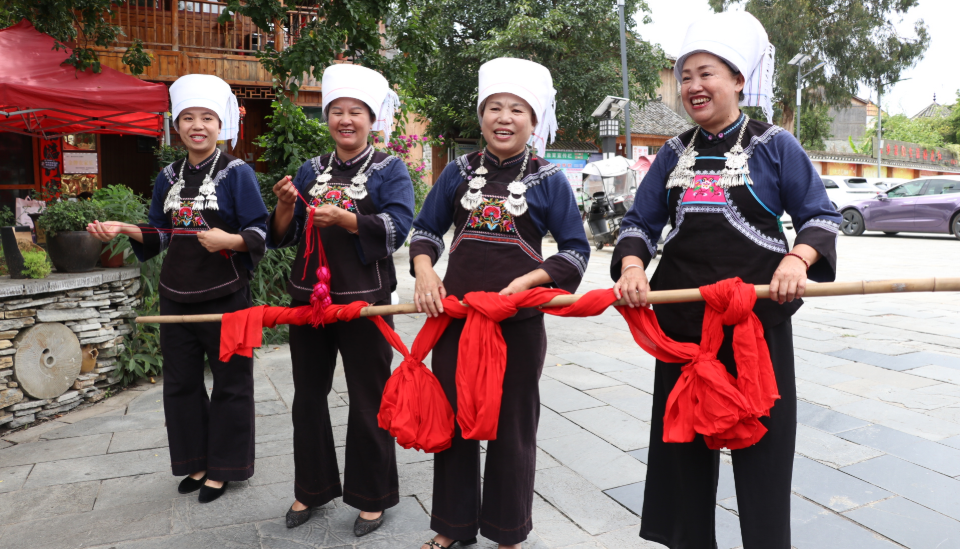 Buyi community singing as they welcome Kenyan delegates in their village, Huishui county, on September 8, 2025/LEAH MUKANGAI
Buyi community singing as they welcome Kenyan delegates in their village, Huishui county, on September 8, 2025/LEAH MUKANGAIBetween bites, and during the whole tour, we learned more about the Buyi. Our guide’s voice, relayed in English by our translator, carried both pride and nostalgia.
“We have lived here for more than 100 years,” she said, gesturing toward wooden houses perched close to each other. “Our people love folk songs. One of our hobbies is to gather and sing. The idea is to make friendship through songs.”
She explained that the most important date in their calendar is June 6.
“It is like a New Year to us,” she said. “In the past, this was the day of sacrifices. Now it is for gathering, singing, and celebrating our traditions.”
I pictured the community filling these courtyards with music, old songs blending with new voices, as generations passed their heritage down through sound.
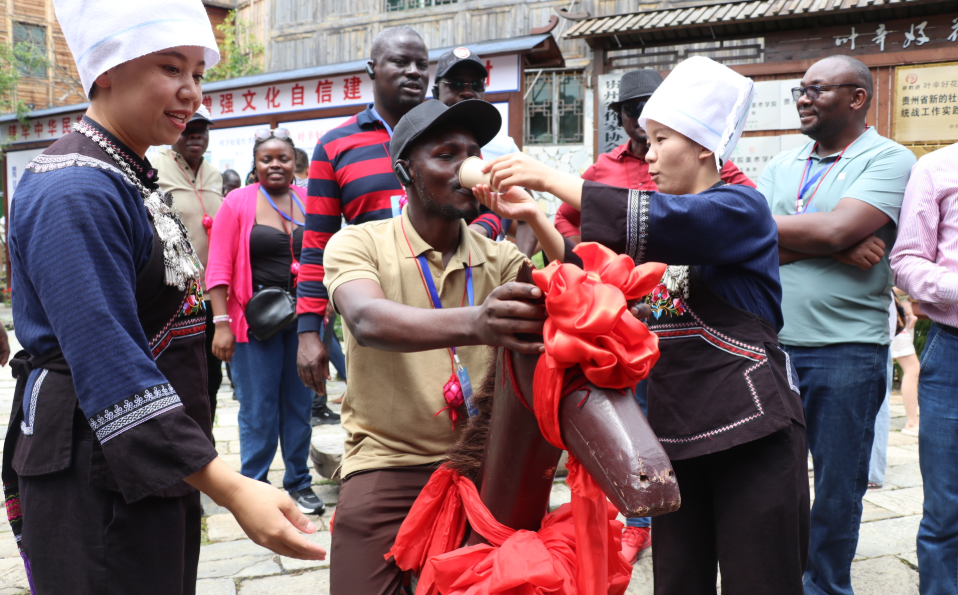 The Star publications' limited administration and head of finance, James Mirang'a, enjoys a 'welcome drink' from one of the Buyi members at Huishui county, China, on September 8, 2025/LEAH MUKANGAI
The Star publications' limited administration and head of finance, James Mirang'a, enjoys a 'welcome drink' from one of the Buyi members at Huishui county, China, on September 8, 2025/LEAH MUKANGAI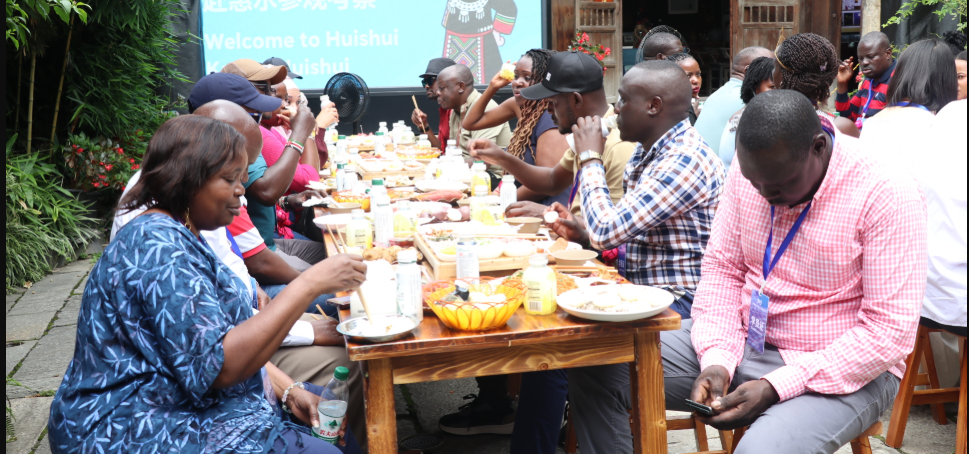 Kenyan delegates enjoy a meal during a visit to Huishui county, China, on September 8, 2025/LEAH MUKANGAI
Kenyan delegates enjoy a meal during a visit to Huishui county, China, on September 8, 2025/LEAH MUKANGAILearning from the Buyi
As a Kenyan journalist, I couldn’t help drawing parallels. In Kenya, we too have rich traditions — from the Maasai’s beadwork to the Swahili’s poetry and coastal architecture. Yet modernity often sweeps such practices aside.
The Buyi, a minority in China, face the same pressures of globalisation, urbanisation, and cultural dilution. Yet what struck me was their deliberate choice to blend modern life with ancestral practices. They did not see tradition as something old-fashioned to be discarded, but as a living resource.
In Kenya, we might ask ourselves: how do we preserve our oral histories, our crafts, our songs, even as cities expand and technology defines our days? The Buyi example shows that culture can be both resilient and adaptive.
Friendship beyond borders
As our visit drew to a close, the Buyi once again broke into song. Their voices rose in unison, weaving harmonies that felt both foreign and familiar. I could not understand the words, but I felt the meaning: joy, hospitality, friendship.
“This is how we welcome friends,” our guide said, smiling. “With music, with food, with the egg of friendship.”
I tucked the memory away like a treasure. It was more than just a cultural experience; it was a lesson in the power of community, in the beauty of traditions that endure, and in the ways human beings — whether in Guiyang or Nairobi — long for connection, song, and shared meals.
As we boarded the bus back to the city, I thought about the egg again. Something so simple, yet carrying such depth. Painted, gifted, and edible — beauty, reality, and sustenance all in one. Much like friendship itself.
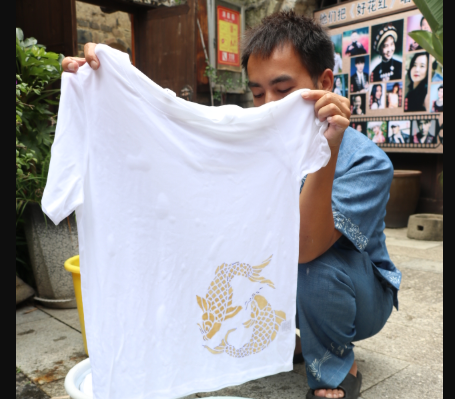 Fabric dye process demonstration at Huishui county, China on September 8, 2025/LEAH MUKANGAI
Fabric dye process demonstration at Huishui county, China on September 8, 2025/LEAH MUKANGAI





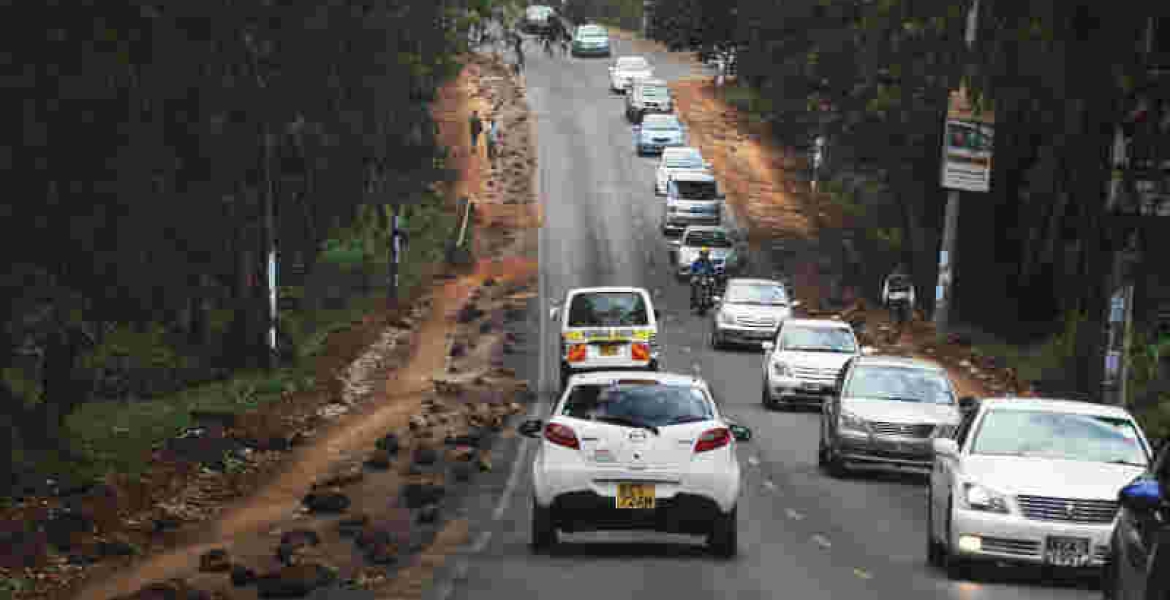
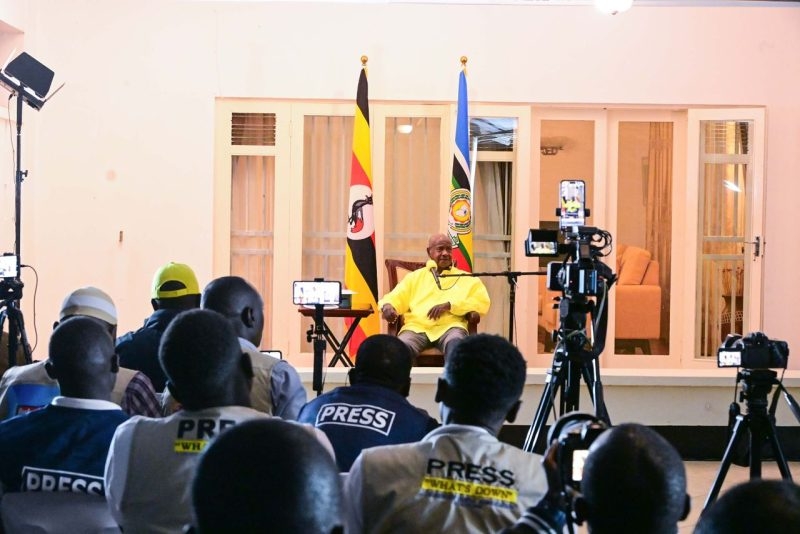





![[PHOTOS] Gor fans march to Bondo to honour Raila](/_next/image?url=https%3A%2F%2Fcdn.radioafrica.digital%2Fimage%2F2025%2F11%2F753aaa26-999c-40fe-bf2e-409fc6282745.jpeg&w=3840&q=100)
